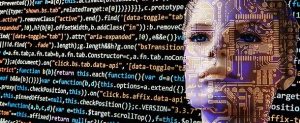Quantum News Briefs August 24: Test of Qunnect’s prototype quantum internet runs under New York City for half a month • NTT DOCOMO and D-Wave boost mobile network efficiency with quantum optimization • Supercharging AI with the power of quantum computing • How quantum Bitcoin miners could make ASIC obsolete

In other news:
Phys.org reports: Test of Qunnect’s prototype quantum internet runs under New York City for half a month

To introduce quantum networks into the marketplace, engineers must overcome the fragility of entangled states in a fiber cable and ensure the efficiency of signal delivery. Now, scientists at Qunnect Inc. in Brooklyn, New York, have taken a large step forward by operating just such a network under the streets of New York City which is described in the venerable Phys.org by David Appel on August 24 and summarized here.
While others have transmitted entangled photons before, there has been too much noise and polarization drift in the fiber environment for entanglement to survive, particularly in a long-term stable network.
For their prototype network, the Qunnect researchers used a leased 34-kilometer-long fiber circuit they called the GothamQ loop. Using polarization-entangled photons, they operated the loop for 15 continuous days, achieving an uptime of 99.84% and a compensation fidelity of 99% for entangled photon pairs transmitted at a rate of about 20,000 per second. At a half-million entangled photon pairs per second, the fidelity was still nearly 90%.
Qunnect’s GothamQ loop demonstration was especially noteworthy for its duration, the hands-off nature of the operation time, and its uptime percentage. It showed, they wrote, “progress toward a fully automated practical entanglement network” that would be required for a quantum internet
 NTT DOCOMO, a mobile operator in Japan, and D-Wave Quantum announced a successful quantum optimization pilot that improved mobile network performance according to Stefania Viscusi in August 23 InternetTelephony. Conducted in various regions of Japan, including Tokai, Chugoku, and Kyushu, it demonstrated the potential of quantum computing to transform network management
NTT DOCOMO, a mobile operator in Japan, and D-Wave Quantum announced a successful quantum optimization pilot that improved mobile network performance according to Stefania Viscusi in August 23 InternetTelephony. Conducted in various regions of Japan, including Tokai, Chugoku, and Kyushu, it demonstrated the potential of quantum computing to transform network management
By leveraging D-Wave’s annealing quantum computing technology, DOCOMO achieved a 15% reduction in paging signals during peak times, leading to more efficient network operations and potential reductions in infrastructure costs.
The pilot focused specifically on optimizing base station tracking areas—small geographical zones responsible for sending paging signals and managing device connectivity as users move between stations.
D-Wave’s quantum technology analyzed extensive historical data on device movement, enabling DOCOMO to predict future patterns and optimize the selection of base stations to maintain connections.
D-Wave’s hybrid quantum solver completed the optimization task in just 40 seconds, compared to the 27 hours required by traditional methods.
Information Week reports “Supercharging AI with the power of quantum computing”
 Quantum computing has the potential to make AI more efficient and be one of the latest innovations that could help pave the way for a more sustainable and efficient future with AI according to Scott Likens in August 23 Information Week. Likens explains, “Quantum computing has the potential to transform AI in multiple ways”:
Quantum computing has the potential to make AI more efficient and be one of the latest innovations that could help pave the way for a more sustainable and efficient future with AI according to Scott Likens in August 23 Information Week. Likens explains, “Quantum computing has the potential to transform AI in multiple ways”:
-
Improved optimization: Quantum computers can perform complex calculations and solve optimization problems much faster than classical computers. This can help AI systems find optimal solutions more efficiently.
-
Enhanced machine learning algorithms: Quantum computing can enable the development of new machine learning algorithms that are specifically designed to take advantage of quantum properties.
-
Faster data analysis: Quantum computers can process and analyze large datasets more quickly, allowing AI systems to make faster decisions and predictions. This can lead to AI models that require fewer resources and are more sustainable.
-
Efficient simulation: Quantum computers can simulate physical systems more accurately and efficiently than classical computers, which can benefit AI applications that require simulations, such as drug discovery, material science, and climate modeling.
-
Enhanced cryptography: Quantum computing can also offer new cryptographic methods that are more secure, making AI systems more resilient to attacks and keeping the privacy and integrity of data.
Coin Telegraph reports: “How quantum Bitcoin miners could make ASIC obsolete”

The Bitcoin mining hardware race could be on the cusp of entering its equivalent of the atomic era as the quantum computing sector matures according to the always excellent Tristan Greene August 22 in The Coin Telegraph.
While today’s quantum computers are largely experimental, recent advances in quantum chip technology and hybrid artificial intelligence functions have pushed the field forward faster than many scientists predicted.
One of the biggest concerns in the industry is developing quantum-proof cryptography solutions. The fear that quantum computers will crack standard encryption has led to the onset of new protocols and encryption standards. This, however, isn’t the only potential catastrophic-level threat quantum computers pose to the blockchain industry.
The next frontier in the mining industry could be quantum/classical hybrid rigs. Taking advantage of the aforementioned Grover’s algorithm, miners using a sufficiently fault-tolerant quantum computer could theoretically increase mining efficiency over current techniques quadratically.
miners wouldn’t require the use of a full universal quantum computer.
A mining rig built on classical equipment could interface with a dedicated quantum chip to perform high-level algorithmic functions, thus reaping the benefits of quantum mechanics and the feasibility of binary computers.



















